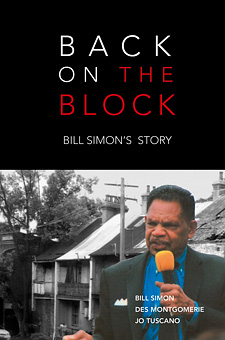 How to break a young boy's spirit:
How to break a young boy's spirit:
Step 1: tear him away from his family
Step 2: replace any source of comfort with cruelty
Step 3: tell him he is "the scum of the earth"
This method was employed by the Australian government for much of the twentieth century, according to Back on the Block: Bill Simon's story.
Simon's description of life as part of the Stolen Generation is heart-wrenching. As a boy he and his three younger brothers were torn from a secure and happy though oppressed family life. The authorities chose to swoop at a time when their father was away at work, using his absence as proof of neglect.
The youngest brother, only two years old, was placed in a children's home. The older brothers - between five and ten years old - were taken to the boys' home at Kinchela, near Kempsey. On their arrival, each was issued with a uniform displaying a number on it. This number was to become the name by which they were known during their time at there.
Bill Simon describes how the authorities at Kinchela discouraged any camaraderie between the boys, and the brothers were even forced to meter out punishment on each other. He tells of one form of punishment had the offender punched in turn by each boy at the home, from oldest to youngest.
Simon's youngest brother was brought to the home at age five, and because of such an early separation, did not even know that he had brothers, let alone recognise them.
It is sickening to read of the heartless physical treatment of these young children, and even more sickening to read of the emotional damage that was caused. This biography contains accounts of boys being lied to repeatedly, told that their parents had the option of coming to get them, but that because they hadn't, they obviously didn't want them. Bill Simon remembers how they were told that the only hope they had for a better life was to disassociate from other Aborigines, because they were "the scum of the earth".
As a result of their oppression, many Kinchela boys, including Simon, turned to alcohol, drugs and violence. Simon's depraved and hopeless lifestyle led to several stints in prison, broken relationships and a depressed life. Once stuck in such a pit, how can a person possibly get out?
God pulled him out. Simon now helps other Aborigines who are in a pit, providing assistance with their physical and emotional needs and pointing them to God.
This book makes a gripping, shameful and revealing read into this disturbing chapter of Australian history, providing background to the social disadvantage still being experienced by some Aboriginal people today.




























